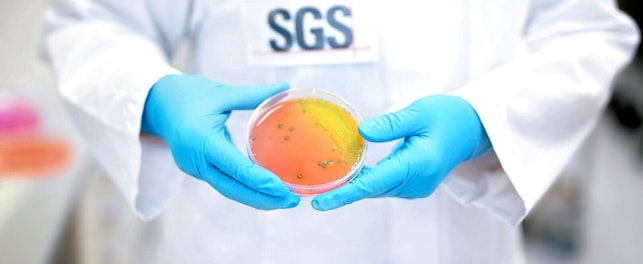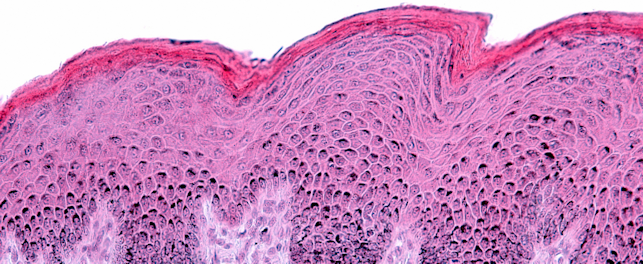Per- and polyfluoroalkyl substances (PFAS) are a group of synthetic chemicals that have been widely used since the 1940s in a range of consumer products, including cosmetics and personal care items. Often called 'forever chemicals' due to their persistence in the environment, many PFAS are now linked to potential health risks. In cosmetics, they are commonly used as emulsifiers, stabilizers and film-forming agents to enhance product performance and longevity. PFAS can be found in everything from color cosmetics (foundation, lipstick, mascara, etc.) to moisturizers and hair conditioners, whether intentionally added or unintentionally present as a result of chemical processing.
As scrutiny intensifies and global regulatory standards tighten, brands must act decisively to ensure the safety and compliance of their products.
Why PFAS in cosmetics are a growing concern
The presence of PFAS in cosmetics is more than just an environmental issue, it is a significant public health concern. These synthetic chemicals do not break down easily in nature or the human body, and mounting scientific evidence links PFAS exposure to a wide range of adverse health effects, including immune system suppression, hormone disruption (e.g. thyroid and sex hormones), reduced fertility and developmental issues, increased risk of certain cancers and liver damage.
Given their ubiquity, durability and ability to accumulate over time, even low-level exposure from repeated use of a PFAS-containing cosmetic or personal care product could pose serious long-term health risks. This has made them a critical point of focus for regulators, industry leaders and health advocates.
Regulatory momentum against PFAS
Regulators around the world are taking decisive steps to limit or eliminate PFAS in cosmetics and personal care products.
In France, a bill currently under review aims to ban the manufacture, import, export and marketing of products containing PFAS – including cosmetics – beginning January 1, 2026. While an amendment makes allowances for trace amounts, specific residual concentration thresholds are expected to be set by decree. These restrictions align PFAS with other hazardous substances already banned under the Cosmetics and Registration, Evaluation, Authorization and Restriction of Chemicals (REACH) Regulations.
In the United States, the Modernization of Cosmetics Regulation Act of 2022 (MoCRA) requires a federal safety assessment of PFAS in cosmetics, expected within three years of the law’s enactment. However, many states are moving faster and have enacted regulations that impact cosmetics and personal care products.
Additionally, several individual states have enacted PFAS regulations that impact cosmetic and personal care products. These include California, Colorado, Maryland and Minnesota, which have enacted bans on the sale of cosmetic products containing intentionally added PFAS substances as of January 1, 2025. Similar legislation has been introduced in other states, such as Florida, Hawaii, Illinois, Iowa, New York and Oregon.
Across the European Union, the European Chemicals Agency (ECHA) oversees enforcement of the REACH and Persistent Organic Pollutants (POP) Regulations. Between November 2023 and April 2024, ECHA's Enforcement Forum led a pilot inspection program across 13 countries in the European Economic Area (EEA). The inspection revealed that 6% of cosmetic products inspected contained substances classified as hazardous and were therefore non-compliant with REACH, underscoring the importance of increased monitoring and rigorous enforcement of current regulations.
Consumer push for clean beauty
As regulations tighten, consumer expectations are rising in parallel. The 'clean beauty' movement continues to gain traction, with shoppers prioritizing products with natural ingredients and assurances that 'clean' products are truly free from harmful chemicals like PFAS. Several clean beauty brands and forward-thinking retailers have already banned PFAS from their formulations and product lists, reflecting a shift in both ethical responsibility and market demand.
PFAS compliance in cosmetics with SGS
As the regulatory landscape around PFAS tightens across global markets, ensuring your cosmetic products are safe and compliant has never been more critical. We stand at the forefront of PFAS testing, offering trusted, science-driven solutions to help you stay ahead of evolving regulations and rising consumer expectations.
Our tailored testing services empower brands to identify and quantify PFAS compounds with precision, ensuring full transparency and alignment with the most stringent regulatory requirements. Our two primary test methods are:
- Liquid chromatography – tandem mass spectrometry (LC-MS/MS): detects and quantifies specific, known PFAS species
- Ion chromatography for total fluorine: measures total fluorine content to identify both known and unknown fluorinated compounds
Why choose SGS
We have decades of PFAS research and testing expertise, backed by deep regulatory knowledge to support cosmetics and personal care brands in meeting global compliance and consumer safety demands. Our services align with key global regulations, including the Stockholm Convention on POPs, the EU’s REACH and POP regulations, California’s Proposition 65 and other US state-specific restrictions.
With state-of-the-art laboratories and experts across the US, Europe, China and India, alongside advanced tools like high-resolution mass spectrometry, we deliver fast, accurate and globally relevant PFAS testing that helps you navigate the ever-changing PFAS regulatory landscape successfully.
IMPACT NOW for sustainability
PFAS testing is a core service within our IMPACT NOW for sustainability initiative, which brings together solutions under four strategic pillars: climate, nature, ESG assurance and circularity. Under the nature pillar, we offer practical solutions to detect and assess PFAS, enabling better decision-making, regulatory compliance and environmental responsibility. Our goal is to empower businesses to drive meaningful change and meet the rising demands of regulators, stakeholders and conscious consumers.
IMPACT NOW for sustainability embodies our commitment to a climate-neutral, nature-positive and pollution-free future.
Learn more about our PFAS solutions for cosmetic and personal care products.
About SGS
SGS is the world’s leading Testing, Inspection and Certification company. We operate a network of over 2,500 laboratories and business facilities across 115 countries, supported by a team of 99,500 dedicated professionals. With over 145 years of service excellence, we combine the precision and accuracy that define Swiss companies to help organizations achieve the highest standards of quality, compliance and sustainability.
Our brand promise – when you need to be sure – underscores our commitment to trust, integrity and reliability, enabling businesses to thrive with confidence. We proudly deliver our expert services through the SGS name and trusted specialized brands, including Brightsight, Bluesign, Maine Pointe and Nutrasource.
SGS is publicly traded on the SIX Swiss Exchange under the ticker symbol SGSN (ISIN CH1256740924, Reuters SGSN.S, Bloomberg SGSN:SW).
16th Floor, Block A, No.73 Fucheng Road, Century Yuhui Mansion,
Beijing, Haidian District, China




